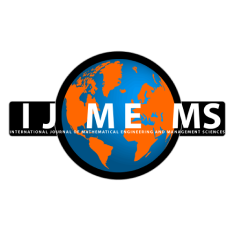Sandip Kumar Patel
U & P.U. Patel Department of Computer Engineering, Charotar University of Science & Technology, CHARUSAT Campus, Gujarat, India.
Ritesh Patel
U & P.U. Patel Department of Computer Engineering, Charotar University of Science & Technology, CHARUSAT Campus, Gujarat, India.
DOI https://doi.org/10.33889/IJMEMS.2022.7.5.046
Abstract
One of the most promising frameworks is the fog computing paradigm for time-sensitive applications such as IoT (Internet of Things). Though it is an extended type of computing paradigm, which is mainly used to support cloud computing for executing deadline-based user requirements in IoT applications. However, there are certain challenges related to the hybrid IoT -cloud environment such as poor latency, increased execution time, computational burden and overload on the computing nodes. This paper offers A Layer & Request priority-based framework for Dynamic Resource Allocation Method (LP-DRAM), a new approach based on layer priority for ensuring effective resource allocation in a fog-cloud architecture. By performing load balancing across the computer nodes, the suggested method achieves an effective resource allocation. Unlike conventional resource allocation techniques, the proposed work assumes that the node type and the location are not fixed. The tasks are allocated based on two constrain, duration and layer priority basis i.e, the tasks are initially assigned to edge computing nodes and based on the resource availability in edge nodes, the tasks are further allocated to fog and cloud computing nodes. The proposed approach's performance was analyzed by comparing it to existing methodologies such as First Fit (FF), Best Fit( BF), First Fit Decreasing (FFD), Best Fit Decreasing (BFD), and DRAM techniques to validate the effectiveness of the proposed LP-DRAM.
Keywords- Fog computing; Cloud computing; Edge computing; Dynamic resource allocation; Load balancing.
Citation
Patel, S. K. & Patel, R. (2022). A Layer & Request Priority-based Framework for Dynamic Resource Allocation in Cloud- Fog - Edge Hybrid Computing Environment. International Journal of Mathematical, Engineering and Management Sciences, 7(5), 697-716. https://doi.org/10.33889/IJMEMS.2022.7.5.046.



